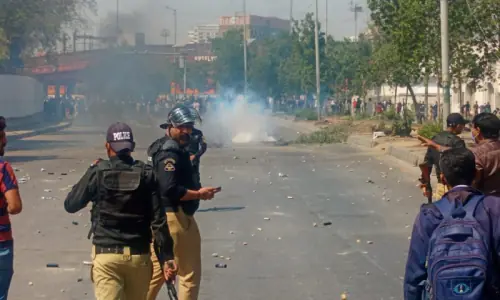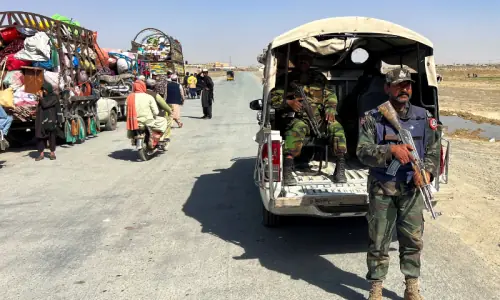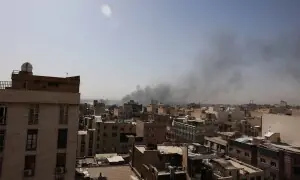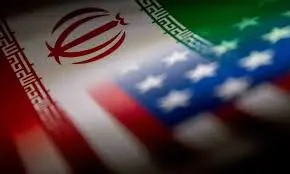While the recent cross border firing incident between India and Pakistan have dramatically spiked tensions between the two neighbours, media outlets on both sides have caught on to the frenzy of propping up the situation.
Some sources, mostly western and some segments in India, have attributed the escalation of the situation to the post 2014 scenario in Afghanistan, when US forces will withdraw from Afghanistan.
Other sources believe that incidents of ceasefire violations would further increase to coincide with the upcoming general elections in India and the change in the top military leadership of Pakistan’s Army.
Apart from pointing out the obvious, few news agencies have highlighted the fact that the current flare up arose amidst communal violence which led to a curfew in Indian-administered Kashmir and the bombing of the Indian embassy in Afghanistan’s Jalalabad city.
The recent developments also followed Pakistan’s new prime minister’s announcement of lifting of a moratorium on death penalty in the country after five years, which paved the way for the execution of hardened criminals and terrorists.
Another viewpoint put forward by a part of the Indian media, reminiscent of the Kargil conflict rather than reality, suggests that Pakistan wants to push through as many militants as it can before the onset of winters when the mountain passes of the Himalaya close and for this purpose Pakistan uses the skirmishes as a cover for infiltration attempts.
Talking about the killing of five Indian soldiers last week, India’s Defence Minister, AK Antony had initially informed the Indian parliament that the attack was carried out by “people dressed in Pakistan Army uniform.”
Opposition leader belonging to the BJP, Yashwant Sihna, moved a priviledge motion against the Indian defence minister accusing him of misleading the nation over the conflicting statements issued over the killing of Indian soldiers.
After facing criticism from the opposition of absolving the Pakistan Army, Antony amended his statement and directly blamed “specialised troops” of the Pakistan Army over the attack.
The defence minister, however, did not elaborate on any credible proof that he may have received, which led to an amendment of his previous statement.
But the amendment appears to a direct reaction to the opposition’s pressure on the government, especially with the general elections scheduled for next year.
Poll panel chief of India’s Bharatiya Janata Party (BJP) addressing a mega rally in Hyderabad had accused the Congress of being only interested in vote-bank politics while referring to the government’s handling of the recent killing of its troops near the LoC.
Many in the Indian media advocating talks with Pakistan, had pointed out that the current situation does not favour Pakistan’s new government and the approach taken by India seems to be following the outdated doctrine of blaming Pakistan and its government.
As if to lend support to the proponents of the old doctrine, members of the Lashkar-e-Taiba (LeT) militant outfit in Pakistan, the group blamed for the 2008 commando-style raid on Mumbai that killed 166 people, told Reuters they were preparing to take the fight to India once again, this time across the region.
Hafiz Saeed, founder of the LeT, left no doubt that Indian-administered Kashmir will become a target, telling an Indian weekly recently: “Full-scale armed jihad will begin soon in Kashmir after American forces withdraw from Afghanistan.”
It is interesting to note that while Saeed remains conspicuous by his absence in the local media, which are better aware of his antics, he continues to garner the attention getting prominent coverage from international news agencies specifically from India.
The LeT has said it is fighting Indian forces in Afghanistan as well.
A senior LeT source in Pakistan told Reuters: “It is correct that the LeT cooperates with the Afghan Taliban when there is a question of attacking Indian interests.”
Given the impunity the LeT chief enjoys, concerns are bound to rise from the Indian side over the involvement of Pakistan’s top spy agency, the Inter Service Intelligence (ISI), in the activities of militant groups in the country.
Despite the proclamation of a full-scale jihad to be launched from Pakistan, Saeed maintains his freedom of movement and access to local and international news agencies without any interference from Pakistan’s law enforcement or security agencies.
“With the Americans leaving Afghanistan, the restraint on the Pakistani security/jihadi establishment is going too,” a former top official at India's Research and Analysis Wing (RAW), the external intelligence arm told Reuters.
“We are concerned about 2014 in either scenario. If the jihadis claim success in Afghanistan, they could turn their attention to us. Equally, if they fail, they will attack in wrath.”
But Pakistan, which has a border with India to the east and with Afghanistan to the west, has concerns of its own.
Religious extremist groups posing a threat to India also pose the same threat to Pakistan, which faces sectarian violence in Balochistan and a similar situation in the tribal areas of northwestern Pakistan.
“I'm shocked by these allegations. Pakistan has its own insurgency to deal with. It has no appetite for confrontations abroad,” said a Pakistani foreign ministry official referring to the Indian charges of stirring trouble in Afghanistan and on the Kashmir border.
“If anything, we are looking at our mistakes from the past very critically. These accusations are baseless. India needs to act with more maturity and avoid this sort of propaganda.”
Both US Vice-President Joe Biden and Secretary of State John Kerry spoke during visits to India recently of the need for New Delhi and Islamabad to resume their stalled peace process as the region heads into a period of uncertainty.
After the recent killing of five Indian soldiers near the Line of Control (LoC) the defacto border between Indian and Pakistan, the situation was routine with both countries engaging in accusations and counter accusations.
True to customs, the peace-dialogue recently brought up by the newly elected prime minister of Pakistan; fell in jeopardy after the incidents.
Demonstrators protesting the attack on the Indian soldiers stopped and attacked the Dosti bus service running between the two neighbouring countries.
A cultural peace event between the two countries also stood cancelled.
Such an environment had conventionally proven condusive for extremist elements on either side of the border.
The situation not only encouraged the LeT chief to issue an aggressive statement detrimental to the nation on the Pakistani side; extremist groups in India also threatened to attack the offices of Pakistan’s national carrier, Pakistan International Airlines (PIA), situated in the Indian capital, New Delhi.
Whether the situation reaches a logical conclusion or not, it is certain that the old doctrine continues to determine the two countries’ outcome.
— Compiled by Hammad A Abbasi with contribution by Reuters































